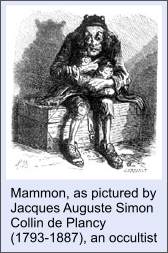For God so loved the world that He gave His only begotten Son… -John 3:16
Through his death on the cross, Jesus saves mankind from their sin. How is this to be understood? If empathy is putting ourselves in another’s place, what might be the ultimate act of empathy? Could it be experiencing the death of the other? Every human being has to die, and in Jesus God enters into this inevitable human fate, experiencing death Himself. Preston Harold says that with total empathy comes an end to sin:
When through experience all mankind has evolved complete empathy, sin will no longer be possible, for man’s empathy will cause him to instinctively withdraw his mind and hand from abuse of another – his understanding will not permit him to err, for he will pay sin’s wage in his own being before he commits it.
Just as Jesus payed sin’s wage in his own being, we are called to do the same. We must experience the sorrow we would bring to another in our own being before we offend against them.
Empathy in man brings its joy or sorrow – enriches or takes its toll of him now, as now flowers into the present and plants the field of the future in reaping the harvest of past planting. Love’s eternal reward and punishment is given before it is grasped – now. Upon that infinitely small point between the past and the future that cannot be captured or measured eternity rests, for both now and eternity are beyond the grasp of consciousness. Eternal punishment of sin rests with empathy, which makes a man recoil with horror at the evil he has done when he comes to an understand it in his being, and thereafter he forever recoils with the pain at the prospect of repeating this evil, recoils now as it arises in the mind to do this evil again.
And here we grasp the meaning of “eternal punishment,” the “now” moment we truly realize and experience through empathy the hell of the horror of realizing the evil that we do to one another. Yet empathy has another face:
Empathy is saving grace to man – it frees his past, frees his future. It is acting now in his midst. Homo sapiens is an empathetic “animal.” He is no mistake on the part of evolution. Jesus’ words say to the belabored man of the twentieth century who has come to doubt nature’s wisdom in evolving his species: there is the living voice of truth, life and love within you, and as you begin to express its power, glory, and empathy, it will say unto you, “This is my beloved Son, in whom I am well pleased.”
Until next time, peace.








